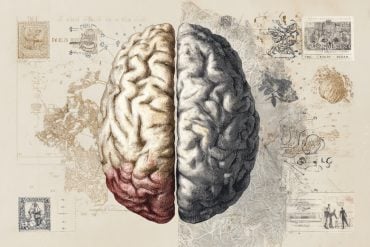Summary: Researchers stress more research needs to be conducted to determine a link between sleep disorders and cognitive impairment in the elderly.
Source: Boston University Medical Center.
Daytime sleepiness is very common in the elderly with prevalence rates of up to 50 percent. Caused by sleep-disordered breathing (SDB), a disruption of normal breathing during sleep, these cause recurrent awakenings and subsequent excessive daytime sleepiness.
In an editorial in the current issue of Neurology, a Boston University School of Medicine (BUSM) researcher stresses that it is now time for physicians to consider the association between these sleep conditions and cognitive impairment in the elderly.
In the same issue of the journal, researchers of the “HypnoLaus Study” investigated an older population (over the age of 65), with and without cognitive impairment. They performed sleep studies on these groups and found that the group with cognitive impairments had more sleep disturbances attributed to SDB.
“Although this does not necessarily mean that sleep apnea causes cognitive impairment in the elderly, it does highlight the association,” explained corresponding author Sanford Auerbach, MD, associate professor of neurology and psychiatry at BUSM and director of the Sleep Disorders Center at Boston Medical Center.
According to Auerbach the causal link between SDB /obstructive sleep apnea (OSA) and cognitive impairment in the elderly is not entirely clear. “Nevertheless, it does raise the issue that clinicians evaluating OSA in the elderly should screen for cognitive impairments. Furthermore, clinicians evaluating cognitive impairment in the elderly should also screen their patients for sleep disturbance and OSA.”

Even though it is not clear that treatment of OSA will delay or prevent the cognitive impairment and possible development of dementia, Auerbach believes that treatment of OSA will certainly improve the quality of life for these patients.
Source: Gina DiGravio – Boston University Medical Center
Image Source: NeuroscienceNews.com image in the public domain.
Original Research: Abstract for “The link between sleep-disordered breathing and cognition in the elderly” by Sanford Auerbach, MD and Kristine Yaffe, MD in Neurology. Published online December 30 2016 doi:10.1212/WNL.0000000000003577
[cbtabs][cbtab title=”MLA”]Boston University Medical Center “Link Between Sleep and Cognitive Impairment in Elderly.” NeuroscienceNews. NeuroscienceNews, 31 January 2017.
<https://neurosciencenews.com/aging-sleep-cognitive-impairment-6032/>.[/cbtab][cbtab title=”APA”]Boston University Medical Center (2017, January 31). Link Between Sleep and Cognitive Impairment in Elderly. NeuroscienceNew. Retrieved January 31, 2017 from https://neurosciencenews.com/aging-sleep-cognitive-impairment-6032/[/cbtab][cbtab title=”Chicago”]Boston University Medical Center “Link Between Sleep and Cognitive Impairment in Elderly.” https://neurosciencenews.com/aging-sleep-cognitive-impairment-6032/ (accessed January 31, 2017).[/cbtab][/cbtabs]
Abstract
The link between sleep-disordered breathing and cognition in the elderly
Sleep disruption and cognitive impairments are not uncommon in the aging adult (affecting up to 50%) and there has been growing information to suggest a link between these conditions, which may lead to new opportunities in clinical care. In this issue of Neurology®, Haba-Rubio et al.1 highlight the association between sleep-disordered breathing (SDB) and cognitive impairment in the elderly. Such findings are consistent with recent studies.2–4 Identification of this relationship must be considered in the context of efforts to identify potentially treatable and modifiable factors that may contribute to the development of cognitive impairment in the older adult. Does this study suggest that we should become more aggressive in the management of SDB in elderly? Furthermore, should we be more thorough in our assessment of cognitive impairments in the elderly with SDB?
“The link between sleep-disordered breathing and cognition in the elderly” by Sanford Auerbach, MD and Kristine Yaffe, MD in Neurology. Published online December 30 2016 doi:10.1212/WNL.0000000000003577






